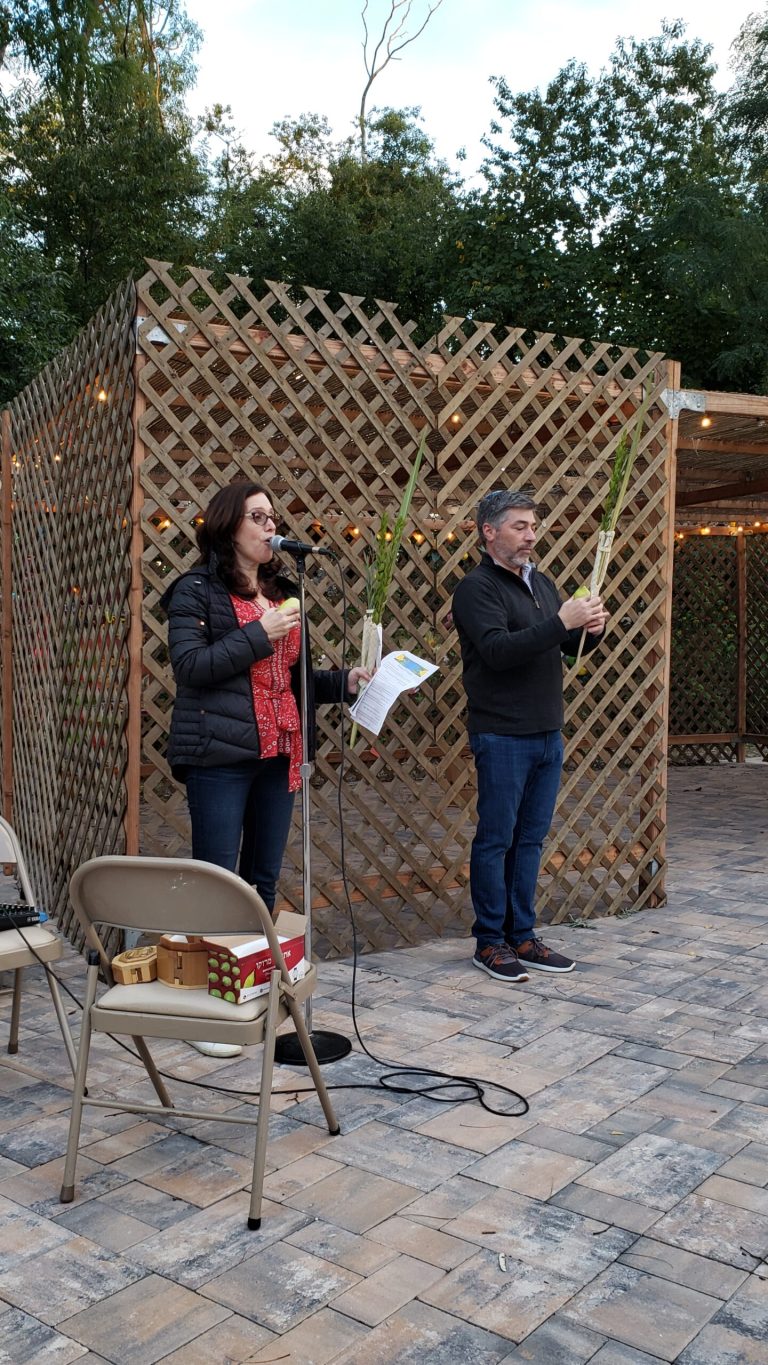
On a crisp sunny day in October, members and friends of Temple Judea met under a brilliant blue sky to celebrate the joyous holiday of Sukkot outdoors on the large Temple campus. A sumptuous barbeque was provided by the Brotherhood,headed by Stan Goldklang, and WRJ Sisterhood, led by Kathi Kafka, Lauren Chizner, and Melissa Antenberg. It was enjoyed by a large group consisting of two-year-old toddlers through all ages of students and adults.
With the expert guidance of Rabbi Todd Chizner and Cantor Deborah Jacobson, participants heard the significance of this holiday and its symbols.
A “Sukkah”(plural:”Sukkot”), a temporary structure that lasts one week, was constructed for this holiday. The roof is typically covered with bamboo sticks or palm leaves, and partially open at the top to observe the sky above. It is also surrounded on three sides by slats of wood, reeds or other materials which render it partially open. The Sukkah symbolizes the impermanence
of shelters on the Biblical path of the Israelites during their trek through the desert for forty years, and celebrates the way in which God protected them under difficult desert conditions.
“You shall dwell in sukkot seven days in order that future generations may know that I brought them out of the land of Egypt, I the Lord your God.” Leviticus 23:42.
The four symbols of the holiday are an etrog (a citron fruit), a palm branch, a myrtle branch and a willow branch. The custom is to shake the three types of branches, the”lulav”, in all directions in the right hand while holding the etrog in the left hand, thereby acknowledging that God is all around and channeling divine energy into the world.
It is also a reminder to be thankful and to praise God for the fruit harvest.
In keeping with the Jewish tradition of providing for the needy, Temple Judea has partnered with the Sid Jacobson JCC to provide fresh fruits and vegetables to be distributed to a community needs bank.
The Social Action Committee, chaired by Rita Marcus and Alicia Munves, set up cartons outside of the Sukkah for the fresh fruits and vegetables donated by the members.






